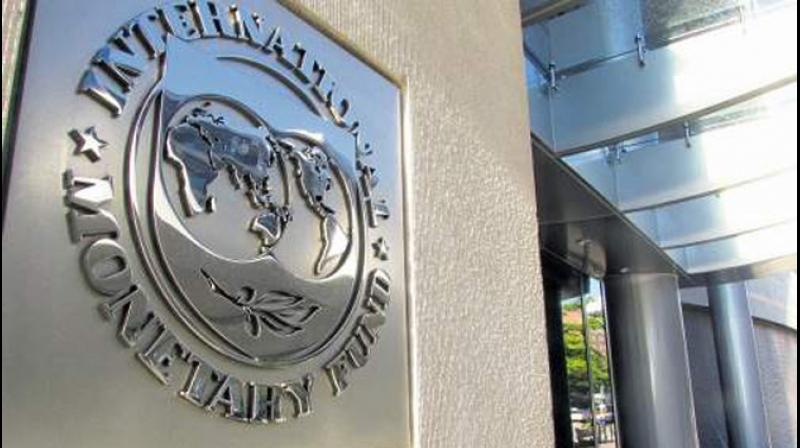‘Regulatory uncertainty’ hits growth
India’s growth rate slipped to five per cent in the first quarter of 2019-20, the lowest in over six years.

Washington: India's economic growth is “much weaker” than expected, according to the International Monetary Fund (IMF), which attributed it to the corporate and environmental regulatory uncertainty and lingering weaknesses in some non-bank financial companies.
India’s growth rate slipped to five per cent in the first quarter of 2019-20, the lowest in over six years. The IMF in July projected a slower growth rate for India in 2019 and 2020, a downward revision of 0.3 per cent for both years.
The IMF had said in July that India’s Gross Domestic Product (GDP) will now grow respectively at the rate of 7 per cent and 7.2 per cent, reflecting a weaker-than expected outlook for domestic demand.
However, India will still be the fastest growing major economy of the world and much ahead of China, the Washington-based global financial institution had said.
“We will have a fresh set of numbers coming up but the recent economic growth in India is much weaker than expected, mainly due to corporate and environmental regulatory uncertainty and lingering weakness in some non-bank financial companies,” IMF spokesman Gerry Rice told reporters at a news conference here on Thursday.
The risks to the outlook are tilted to the downside, he said.
Responding to a question on the recent GDP figures of India, Rice said the IMF will monitor the economic situation in the country.
Sharp deceleration in manufacturing output and subdued farm sector activity pulled down India's GDP growth to over six-year low of 5 per cent in the April-June quarter of 2019-20, according to official data released last month.
The previous low in GDP growth was recorded at 4.3 per cent in January-March quarter of 2012-13. India's economic growth stood at 8 per cent in the same quarter of 2018-19.
“The GDP at Constant (2011-12) Prices in Q1 of 2019-20 is estimated at Rs 35.85 lakh crore, as against Rs 34.14 lakh crore in Q1 of 2018-19, showing a growth rate of 5 per cent,” the National Statistical Office (NSO) said in a statement. “We will update that assessment in the upcoming world economic outlook,” the IMF spokesman said.

